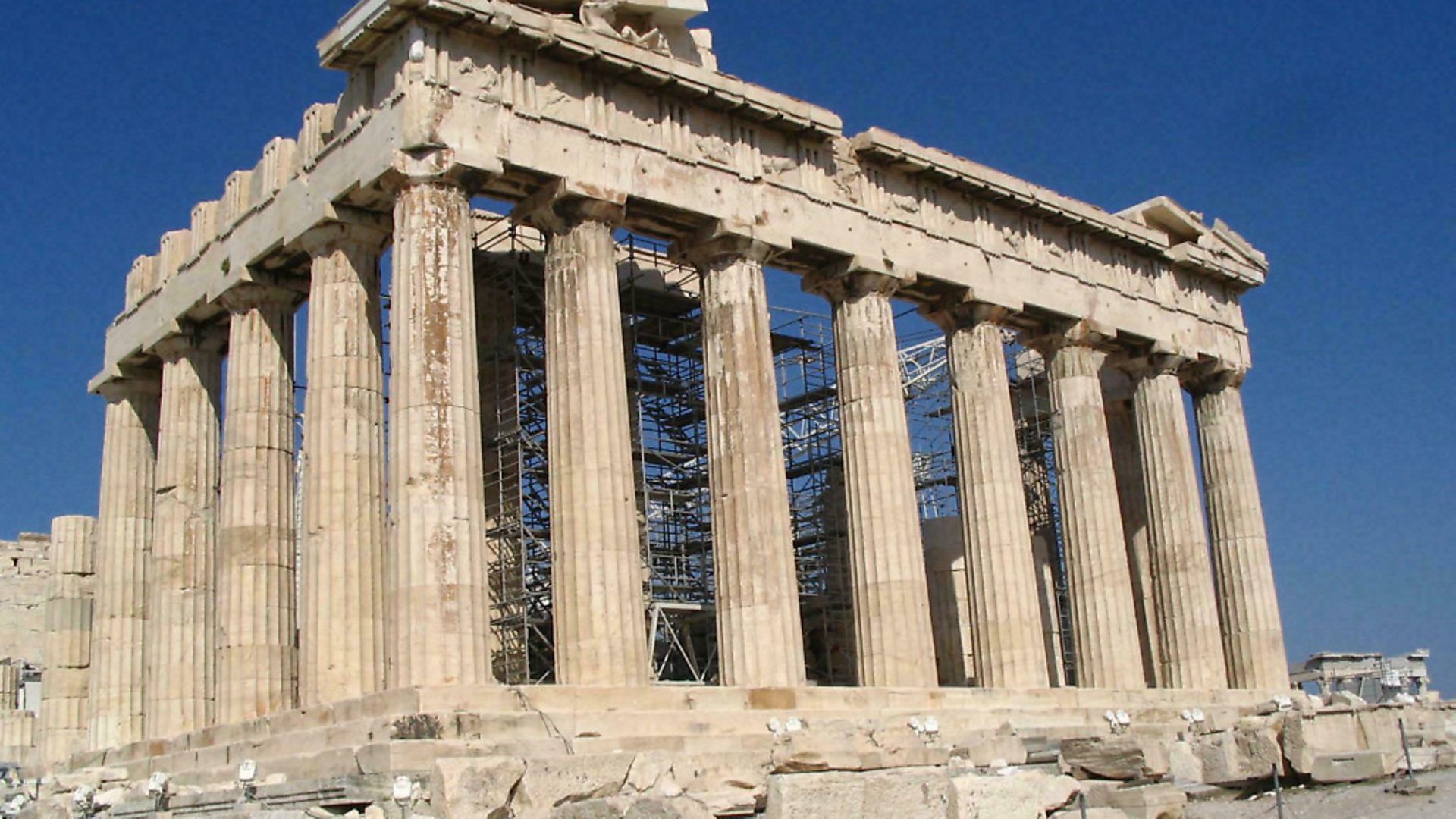
Why we have the Ancient Greeks to thank for almost all our misfortunes.
In English we don’t really have a true equivalent of the French expression bon appétit, wishing people who are about to start a meal a ‘good appetite’. But most other European languages seem to have some kind of bon appétit-type formula: German speakers say Guten Appetit, Polish has Smacznego!, and in Greek the corresponding phrase is Kalí órexi.
In Greek kalí means ‘good’. And the Greek term órexi, ‘appetite’, will not be totally unknown to English speakers these days because of the much discussed eating disorder, anorexia nervosa. The an- prefix in anorexia signifies ‘absence of’ (as also in anaerobic, ‘without air’). So anorexia – also anorexy in older English usage – indicates ‘absence of appetite’.
A much more recent coinage is orthorexia, ‘a pathological fixation on eating proper food’, with the ortho- part meaning ‘straight, upright, correct, proper’, as in orthodox, orthography etc. And there is another medical term, polyorexia, which means ‘having excessive appetite’ – in other words, eating too much.
The English language itself seems to have had a very healthy appetite for borrowing Greek words for undesirable conditions, unfortunate events, and other unpleasant phenomena (phenomenon is also a Greek word, from the verb phenein, ‘to appear’). The name of the eating disorder bulimia comes from Ancient Greek boulimía, ‘ravenous hunger’, originally composed of bous, ‘ox’ and limós, ‘hunger’. Xenophobia is put together from Greek xénos, ‘stranger, foreigner, guest’ followed by phóbos, ‘fear’. And misogyny consists of the Ancient Greek word for ‘hatred’, mísos, also seen in misanthropy, and the word for ‘woman’, gyné, which also occurs in gynaecology.
We would, in fact, have a hard time talking and writing about disasters in English if it weren’t for the Ancient Greeks. Our Greek-origin vocabulary for various types of crisis is very extensive. The word crisis itself has its origins in the Ancient Greek word krísis, from the verb krinein, ‘to decide’. In Modern Greek, kríno means ‘I judge’. So a crisis was originally some kind of decisive turning point.
Much worse than a crisis, of course, is an apocalypse – from Ancient Greek apokálypsis, where apo- meant ‘off, from’ and kálypsis meant ‘cover’, so the whole word meant ‘uncovering, disclosure’. The original meaning in English was ‘revelation’; but because of the events described in the Revelation of St John – the destruction of the world after the Second Coming of Christ – it came to signify a disaster resulting in drastic, irreversible and possibly world-wide damage to human societies – some kind of major cataclysm, in other words.
Cataclysm is also a Greek-origin word. In Modern Greek the most usual meaning of kataklysmós is ‘flood’, which was its earliest meaning in English too, particularly with reference to the biblical flood. But then it acquired the more figurative meaning of a political or social upheaval which sweeps away the established order. The ultimate origin of the word lies in Greek katá, ‘down’, and klýzo, ‘to clean with water, wash down, wash out’.
And of course a cataclysm can lead to chaos – which is also a Greek word. Ancient Greek kháos meant ‘a gulf or chasm of emptiness’. Needless to say, chasm, too, is a word we borrowed from the Ancient Greeks. And the cha- at the beginning of chaos and chasm comes from the Greek root kha-, ‘gape’. In Modern Greek, khásima means ‘yawn’.
Cataclysms, apocalypses and crises can all end in tragedy, a word which comes from the Ancient Greek tragodía, ‘tragic play, tragic drama’. The second element of the word is from ódé, ‘ode’. Rather surprisingly, it is thought that the first part probably derives from trágos, ‘billy-goat’. One possible explanation for this etymology is that a goat was awarded as a prize to the winner of early Athenian tragedy-writing contests…










